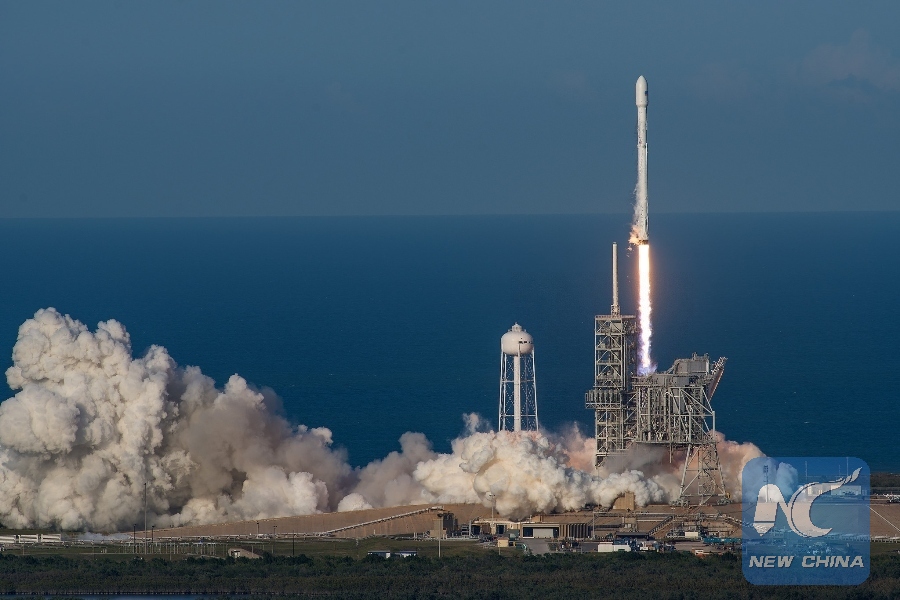
The photo made available by U.S. space firm SpaceX on March 30, 2017 shows the company's Falcon 9 rocket launches at the Kennedy Space Center in Florida, the United States. U.S. space firm SpaceX is attempting to make history on Thursday with the first launch of an already-used Falcon 9 rocket into space. (Xinhua)
WASHINGTON, June 23 (Xinhua) -- U.S. space firm SpaceX on Friday successfully launched Bulgaria's first geostationary communications satellite into space with its second partly reused rocket.
The BulgariaSat-1 satellite took off on a Falcon 9 rocket from Launch Complex 39A at Kennedy Space Center in Florida at 3:10 p.m. EDT (1910 GMT), a live webcast showed.
Roughly eight minutes after launch, the rocket's first stage completed a vertical landing on the "Of Course I Still Love You" droneship stationed in the Atlantic Ocean.
A SpaceX official called it the "most challenging landing to date."
Just before the launch, SpaceX founder Elon Musk said via Twitter: "Falcon 9 will experience its highest ever reentry force and heat in today's launch. Good chance rocket booster doesn't make it back."
Minutes after the landing, Musk tweeted again: "Rocket is extra toasty and hit the deck hard (used almost all of the emergency crush core), but otherwise good.
The rocket's first stage for the BulgariaSat-1 mission previously supported the Iridium-1 mission from Vandenberg Air Force Base in California in January of this year.
It was the second time SpaceX has used a flight-proven first stage on a mission.
On March 30, the California-based company launched a satellite for Luxembourg-based satellite operator SES, using a Falcon 9 first stage that first flew on a cargo resupply mission for the U.S. space agency NASA in April 2016.
That's part of an ongoing effort by SpaceX to bring down spaceflight costs.
"The reusable rocket is a breakthrough in space technology that makes it possible for smaller countries and companies to launch their own satellites," Maxim Zayakov, CEO of BulgariaSat, said in a statement in May.
BulgariaSat-1, the first geostationary communications satellite in Bulgaria's history, was successfully deployed about 35 minutes after launch.
It's expected to provide television and communication services in the Balkans and other European regions for at least 15 years.

